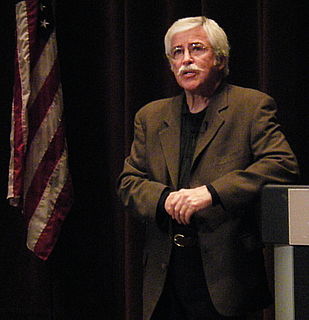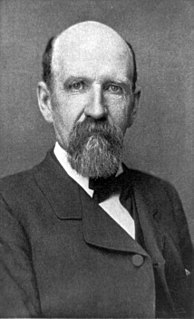A Quote by William Shakespeare
There is a tide in the affairs of men, Which taken at the flood, leads on to fortune. Omitted, all the voyage of their life is bound in shallows and in miseries. On such a full sea are we now afloat. And we must take the current when it serves, or lose our ventures.
Related Quotes
Yet in the blood of man there is a tide, an old sea-current, rather, that is somehow akin to the twilight, which brings him rumours of beauty from however far away, as drift-wood is found at sea from islands not yet discovered; and this spring-tide or current that visits the blood of man comes from the fabulous quarter of his lineage, from the legendary, of old; it takes him out to the woodlands, out to the hills; he listens to ancient song.
Ought a man to be confident that he deserves his good fortune, and think much of himself when he has overcome a nation, or city, or empire; or does fortune give this as an example to the victor also of the uncertainty of human affairs, which never continue in one stay? For what time can there be for us mortals to feel confident, when our victories over others especially compel us to dread fortune, and while we are exulting, the reflection that the fatal day comes now to one, now to another, in regular succession, dashes our joy.
We are facing a flood tide of factors into our daily lives and the lives of our children that conspire against weight control, and for that matter, health, any single policy or program we use to turn the tide is like a single sandbag. You put down the sandbag on the banks of the river. You could ask the question: Have we held back the flood? A sandbag isn't designed to hold back the flood. A sandbag is designed to be part of a levy to hold back the flood. It doesn't matter if it's a good sandbag, maybe a perfectly good sandbag. By itself it can't fix the problem.
A lobster, when left high and dry among the rock, does not have the sense enough to work his way back to the sea, but waits for the sea to come to him. If it does not come, he remains where he is and dies, although the slightest effort would enable him to reach the waves, which are perhaps within a yard of him. The world is full of human lobsters; people stranded on the rocks of indecision and procrastination, who, instead of putting forth their own energies, are waiting for some grand billow of good fortune to set them afloat.
To be truly challenging, a voyage, like a life, must rest on a firm foundation of financial unrest. Otherwise, you are doomed to a routine traverse, the kind known to yachtsmen who play with their boats at sea 'cruising' it is called. Voyaging belongs to seamen, and to the wanderers of the world who cannot, or will not, fit in. If you are contemplating a voyage and you have the means, abandon the venture until your fortunes change. Only then will you know what the sea is all about.
To young men contemplating a voyage I would say go. The tales of rough usage are for the most part exaggerations, as also are the tales of sea danger. To face the elements is, to be sure, no light matter when the sea is in its grandest mood. You must then know the sea, and know that you know it, and not forget that it was made to be sailed over.
Our prayer must not be self-centered. It must arise not only because we feel our own need as a burden we must lay upon God, but also because we are so bound up in love for our fellow men that we feel their need as acutely as our own. To make intercession for men is the most powerful and practical way in which we can express our love for them.
To find anything comparable with our forthcoming ventures into space, we must go back far beyond Columbus, far beyond Odysseus-far, indeed, beyond the first ape-man. We must contemplate the moment, now irrevocably lost in the mists of time, when the ancestor off all of us came crawling out of the sea.




































